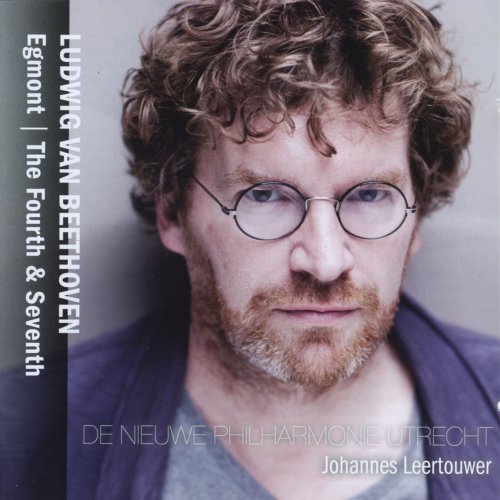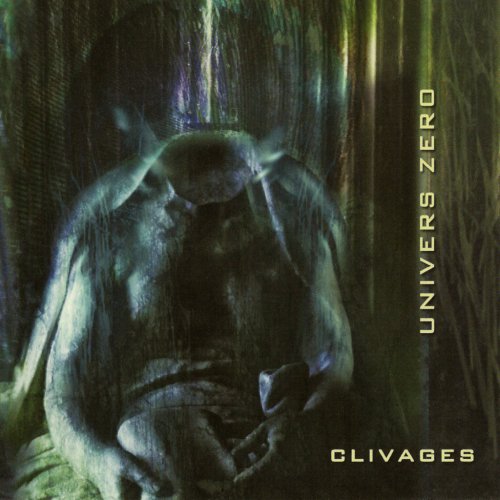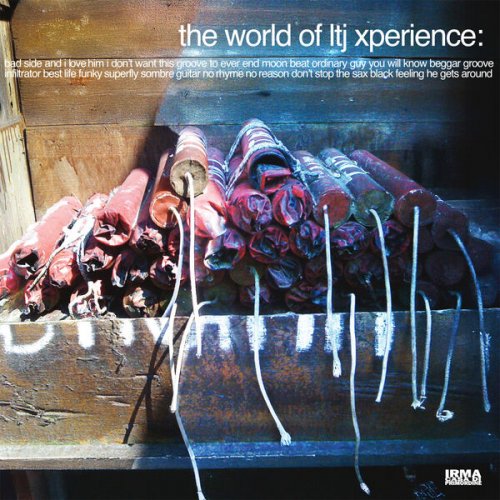De Nieuwe Philharmonie Utrecht, Johannes Leertouwer - Beethoven: Egmont Ouverture, Symphonies No. 4 & 7 (2011)

Artist: De Nieuwe Philharmonie Utrecht, Johannes Leertouwer
Title: Beethoven: Egmont Ouverture, Symphonies No. 4 & 7
Year Of Release: 2011
Label: Globe
Genre: Classical
Quality: flac lossless (tracks)
Total Time: 01:12:05
Total Size: 328 mb
WebSite: Album Preview
TracklistTitle: Beethoven: Egmont Ouverture, Symphonies No. 4 & 7
Year Of Release: 2011
Label: Globe
Genre: Classical
Quality: flac lossless (tracks)
Total Time: 01:12:05
Total Size: 328 mb
WebSite: Album Preview
01. Overture Egmont in F Minor, Op. 84
02. Symphony No. 4 in B-Flat Major, Op. 60: I. Adagio - Allegro vivace
03. Symphony No. 4 in B-Flat Major, Op. 60: II. Adagio
04. Symphony No. 4 in B-Flat Major, Op. 60: III. Allegro vivace
05. Symphony No. 4 in B-Flat Major, Op. 60: IV. Ellegro ma non troppo
06. Symphony No. 7 in A Major, Op. 92: I. Poco sostenuto - Vivace
07. Symphony No. 7 in A Major, Op. 92: II. Allegretto
08. Symphony No. 7 in A Major, Op. 92: III. Presto - Assai meno presto
09. Symphony No. 7 in A Major, Op. 92: IV. Allegro con brio
Even if the ensemble name De Nieuwe Philharmonie Utrecht (The New Utrecht Philharmonic) gives no clue, the picture in the album art of conductor Johannes Leertouwer, clad in T-shirt and sport jacket and sullenly staring down the camera, will let listeners know that this is a Beethoven symphony recording from the historical performance practice corner. The Utrecht group is made up of former members of several of the leading Dutch historical ensembles, and all the hallmarks are here: moderate-sized string section that lets the horns and winds show through, flat affect, and a plane-like approach to structure that Leertouwer justifies with reference to the differing timbral qualities that an audience of Beethoven's time might have associated with different keys. All of which makes it the more surprising to hear the music and to learn from Leertouwer's notes in the CD version that his primary inspiration was not Harnoncourt or Gardiner, but one of the most famous of the old German school of conductors, Carlos Kleiber, who specialized in the pairing of the Symphony No. 4 in B flat major, Op. 60, and Symphony No. 7 in A major, Op. 92, heard here. The outer movements of the Symphony No. 7 are pure Kleiber: fast and hurtling forward, with hard edges everywhere. Leertouwer also has Kleiber's way with attention to detail, pulling out bits of transitions and highlighting them with the application of tempo rubato. Is this all an odd combination? Most assuredly, and the decidedly underpowered Egmont Overture, Op. 84, hardly sounds like something Beethoven would have recognized. But there's something to be said for breaking the mold, which here is pretty much shattered into little pieces.
![Mama Badema Sissoko - Diamond Fingers (2026) [Hi-Res] Mama Badema Sissoko - Diamond Fingers (2026) [Hi-Res]](https://img.israbox.com/img/2026-02/14/c0n712ykaoqm3p9yoqdmhda1i.jpg)



![K.D. Lang - Ingénue (25th Anniversary Edition) (1992/2017) [Hi-Res] K.D. Lang - Ingénue (25th Anniversary Edition) (1992/2017) [Hi-Res]](https://www.dibpic.com/uploads/posts/2026-02/1771149710_cover.png)

![Momoko Gill - Momoko (2026) [Hi-Res] Momoko Gill - Momoko (2026) [Hi-Res]](https://www.dibpic.com/uploads/posts/2026-02/1770838961_a3258795048_10.jpg)

